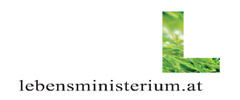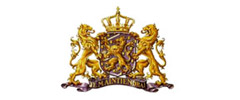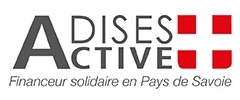Gender, Water and Sanitation
Three articles on this subject by IRC, co-organiser of the special session at WWF5 in Istanbul
30.06.2009 |IRC
The special session on on Gender, Water and Sanitation at the World Water Forum 5 in Istanbul was organised by the UN WATER gender and water taskforce, in cooperation with WECF, IRC and other organisations.
More information: WECF in Istanbul, the way forward in the 21th century
IRC has published three items on gender-disaggregated data for water and sanitation on their website:
' Health, Dignity and Economic progress: the way forward to gender equity', article on the special session during the opening of the WWF5, Istanbul, Turkey:
Three ministers of women’s affairs, water and rural development, from Ethiopia, India and Turkey met to discuss with experts and participants during the special session “Health, Dignity and Economic Progress: The Way Forward for Gender Equity”, on Monday 16th of March during the opening of the World Water Forum 5, Istanbul, Turkey.
Santha Sheela Nair from India, passionately pleaded for leaving taboos surrounding sanitation behind us as ‘reproductive health is dependent on menstrual health’ therefore we should build toilets for young girls which do not smell, are not very far away from the school building and where young girls do not face the risk of being raped. Her suggestion: ‘build girls’ toilets next to the headmasters’ room!’
The special session was organised by the UN WATER gender and water taskforce, in cooperation with other UN agencies and civil society organisations[1]. “We know that safe sanitation and hygiene are key for healthy populations, children particularly, but in our rush to reach the Millennium Development Goal on Sanitation, we unfortunately see a focus on purely technical solutions, we are only counting the number of toilets installed, not if they are having the effect on improving health and living standards”, says Charlotte van der Schaaf, of UN Water Capacity Building programme, “only when we do capacity building and hygiene education at the same time, can we achieve lasting improvement, and there, women are the key catalysts, they are the ones able to change hygiene behaviour in their families and communities”.
[1] United Water Decade Programme on Capacity Development, Women in Europe for a Common Future – WECF, IUCN, Stockholm Environment Institute, Ecosanres, Wateraid, Gender Water Alliance, IRC, Women for Water and Soroptomists International.
More information:
http://www.irc.nl/page/47895
'Gender disaggregated data on water and sanitation' - article on the expert meeting on gender disaggregated data in the watsan sector, held in December 2008, with a link to the final report of the meeting.
An expert meeting on gender disaggregated data in the watsan sector, in which IRC's Christine Sijbesma participated, was held in December 2008. This meeting had several main goals, namely to take stock of gender-disaggregated data on water and sanitation at global and regional levels, to identify obstacles to gender-disaggregated data capacity and collection and to identify data needs and priorities. Finally, recommendations were made on policies, practices and priorities to improve the state of gender-disaggregated data on water and sanitation. The final report of this meeting is available in the PDF.
0903 EGM Report.pdf (1.01 MB)
More information: http://www.irc.nl/page/47898
'Summary paper on gender, water and sanitation' - item about the summary paper of the expert meeting.
This summary paper gives a short overview of why gender-disaggregated data for water and sanitation are needed. It also states that data gathering needs to be improved and lists a number of recommendations on how to move forward.
GenderDataSanitation_Sum.pdf (2.89 MB)
More information: http://www.irc.nl/page/47899
Related News
Round table discussion Violence Against Women and Economic Development
The round table treated the topic of Violence against women and Economic Development
13.12.2017
Women Ministers and Leaders Breakfast Meeting Report
On the 5th of December more than 100 female ministers and leaders met, and discussed the topic of Gender and a Pollution Free Planet
11.12.2017
WECF board member took part in seminar on CEDAW General Recommendation
Utrecht University organised the seminar in the light of the new CEDAW General Recommendation on gender-related dimensions of disasters in a changing climate
17.10.2017
WECF participated at WASH symposium in Uganda
From June 20th-23rd, a WASH symposium was held in Kampala, Uganda. WECF participated in cooperation with our local partner organization ARUWE and we presented our water, sanitation and energy projects in Uganda.
23.06.2016
We've made it - overwhelming success of our crowdfunding campaign!
In the last 4 weeks we run a crowdfunding campaign to collect 4.000€ to finance 15 Biogas Toilets for deprived families in Uganda. Thanks to your great support we can now build even more!
22.06.2016






































